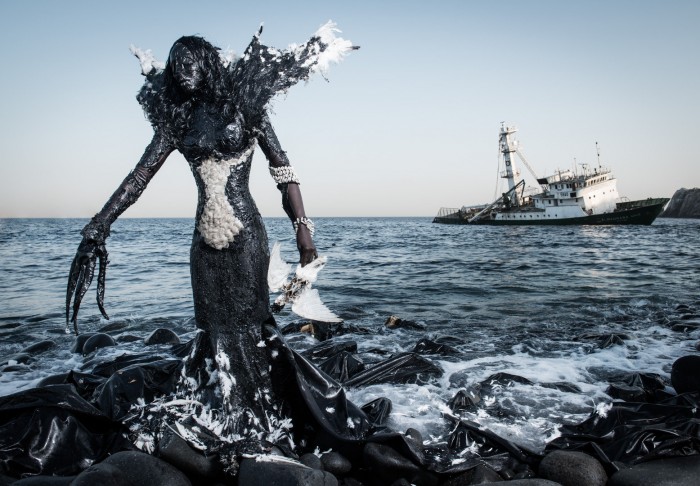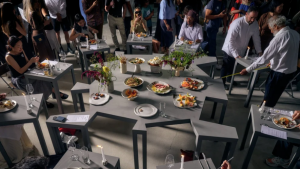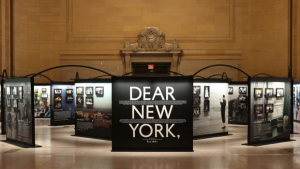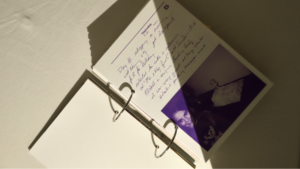
A woman rises from the rocky coast covered in tar. One of her hands resembles a tentacle; the other clutches the carcass of a white bird. A sinking ship is seen in the background.
The image above may conjure up an apocalyptic world, but Dakar-based photographer Fabrice Monteiro says it’s reality.
“We already live in a dystopian world,” Monteiro told The Stream on Al Jazeera this week in a discussion on the rise of dystopian art. “When we are confronting an issue that is global, like what we are going through now with global warming, and then on the other side, nations are getting more and more ego-centric, to me it’s a total dystopian situation. Add to that the fact that totalitarianism is ruling the world now and I think you have all the elements of a dystopian world in the present.”
His series The Prophecy shines a light on environmental degradation in West Africa. While the photographs have been called dystopian, he’s quick to point out the scenery is all real. “I’m not so much interested in the future because I think the reality right now, the present, we have enough to deal with.” he said. “If you take the characters out, you can take your camera and find these places in Senegal.”
Of course, no one would want to take the characters out of his photographs. He explains that the spirits are an attempt to highlight the environmental crises, using African culture and traditions.
In the story he is telling, “Mother Earth is sick because she took millions of years to create this planet… and in 200 years we literally destroyed it. So she decided to send her spirits down to earth. This is her last option, to authorise the spirits to appear to humans and deliver to them a message of caution. Every single image is about one specific issue, and that issue is global; it is not just in Senegal, it is not just in Africa, it is planetary.”
Despite his dystopian view of the world, Monteiro denies his friends find him depressing. “When I do something like The Prophecy, it’s not saying, ‘Oh look, it’s terrible; we’re all going to die.’ It’s saying, ‘How can I create some awareness for the new generation?’”
He adds, “In all the negativity that’s happening right now around the world, there’s also a lot of positives. Because when you reach a certain point, there’s no other way than up.”
Asked about what he’s currently working on, Monteiro says he’s exploring black identity. “I’m half-European from my mother and African from my father, so I have 100 per cent African culture on one side and 100 per cent European culture on the other side, so this got me interested in the evolution of black identity through history.”
Monteiro was joined on The Stream by Nnedi Okorafor, the World Fantasy Award winning author of Who Fears Death; Marie Lu, the New York Times bestselling author of Legend and The Young Elites series; and Ron Charles, editor of Washington Post’s Book World. You can watch the full discussion online.






